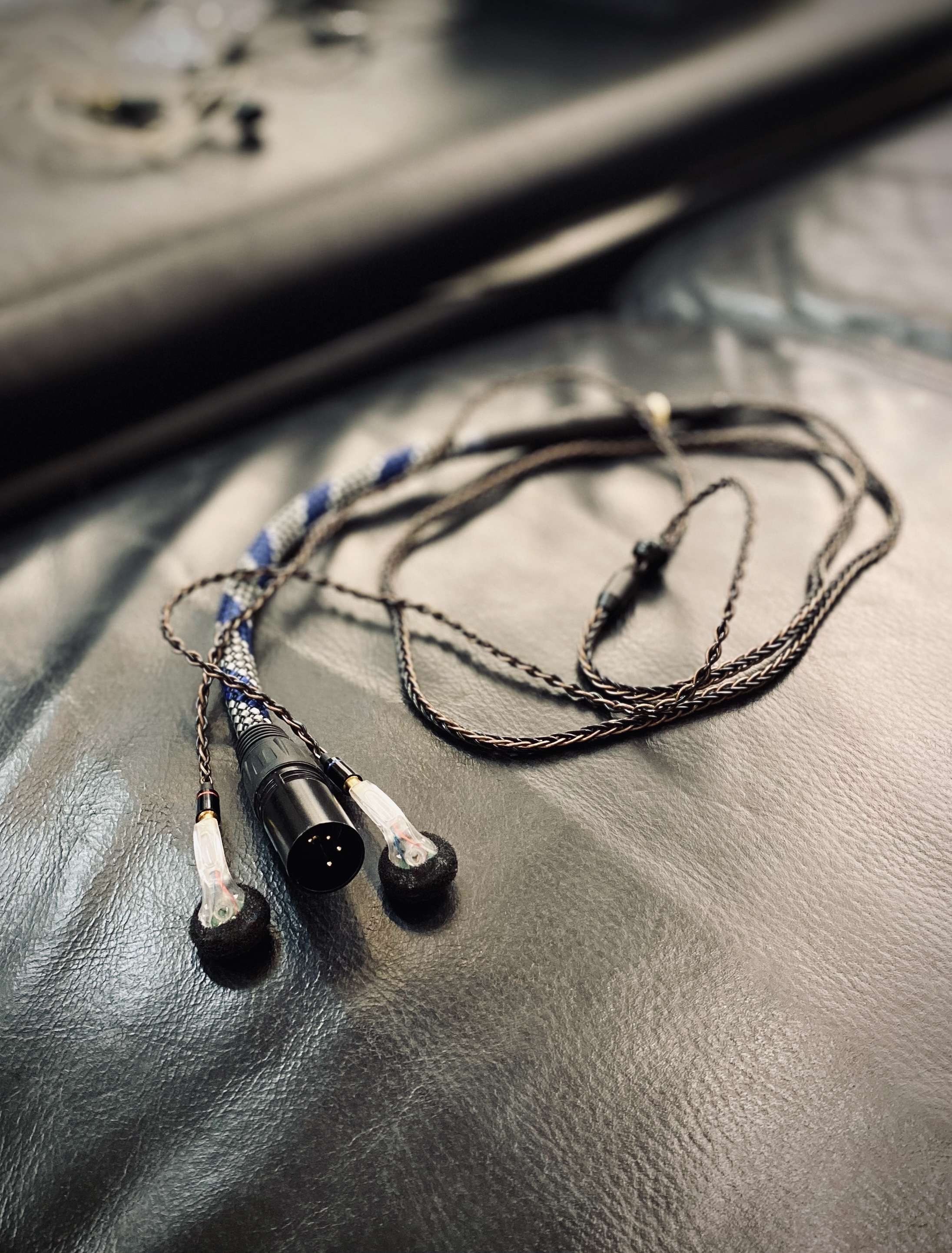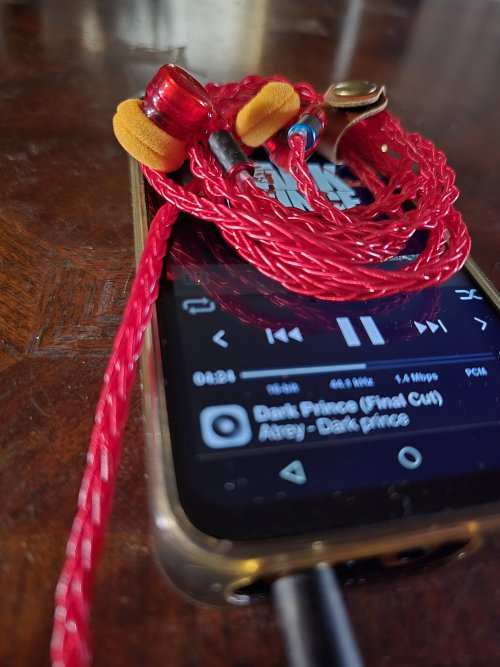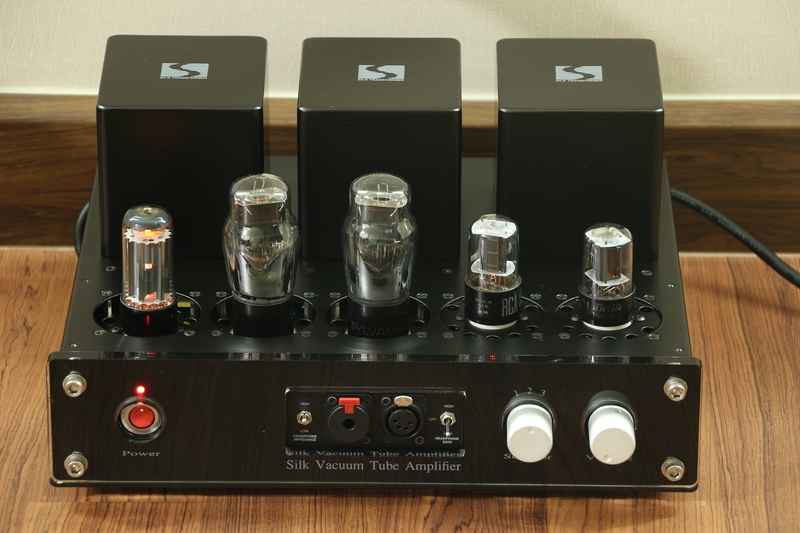Do you use a nuke reactor to power that thing? Also, is this one of @tgx78? What are your thoughts?Especially 500 Ohm Bery
Latest Thread Images
Featured Sponsor Listings
You are using an out of date browser. It may not display this or other websites correctly.
You should upgrade or use an alternative browser.
You should upgrade or use an alternative browser.
Earbuds Round-Up
- Thread starter ClieOS
- Start date
-
- Tags
- akg akg-k-319-in-ear-bud-headphone-dark-charcoal audio-technica-ath-cm707 baldoor-earbell-e100 bang-olufsen-a8-earphones blox-anv3 blox-m2c blox-tm7 blue-ever-blue-328r creative-aurvana-air-headphones-over-the-ear crossroads-hr1 dunu-alpha-1-hybrid-earbuds-dynamic-balanced-armature-high-fidelity-headphones earbuds hifiman-electronics-es100-vintage-style-earbud-with-15mm-driver-blue rose sennheiser sennheiser-mx-580-stereo-headphones-with-intergrated-volume-control sennheiser-mx-581-stereo-stereo-headphones-with-intergrated-volume-control sennheiser-mx-760 sennheiser-mx-90-style-series-in-ear-headphone-with-volume-control sunrise-audio sunrise-audio-charm venture-electronics-ve-zen yuin-pk1-earphones yuin-pk3-earphones
Do you use a nuke reactor to power that thing? Also, is this one of @tgx78? What are your thoughts?
It is difficult to drive, but with for example "megatron" and with "E1DA 9038 SG3" I get the best of it without difficulty.
My thoughts for this 500 Ohm are that after having it at home for a year without obtaining a remarkable performance, based on adjusting and readjusting, and why not say it, using crazy tuning, I have managed to make it the number 1 of collection without a doubt, something like stating that I don't need anything more than this, everything, absolutely everything, highs, mids, lows, subbass, stage, depth, laterality, separation, tonality, timbre, etc, etc, is simply what I search. What is better to find or what are you looking for?
I would love to be able to tell you what @tgx78 has achieved with them, but I have not listened to them, without a doubt my recommendation would be towards any construction with this driver, important: my recommendation.
Of course, it is my personal opinion and as always to say that what seems wonderful to me may be simply rubbish to another.
I'm not good at describing sound, so I haven't really gotten into that field. But there are great drivers, and this one is expensive... but such a crazy value for me that I have 4 units.
Last edited:
This is what exactly what i had in mind when i thought of nuke reactor. Looks dope.This reactor pairs well with 500Ω or 600Ω earbuds... easily driving them to total bliss!I think it may be nuclear... thermonuclear... no, wait that is thermionic... never mind.

tgx78
Member of the Trade: tgxear
I think I spent about 90-100 hours tuning 500 beryllium so far. Not satisfied yet but miles better than when I first started. I still prefer my 300ohm BG for symphonic music but I am aiming to compliment it by 500’s slightly wetter and organic sound vs 300’s neutral bright sound that has a bit of dryness and sharp characteristics.
I also use 9038SG3 and megatron to test it.
I also use 9038SG3 and megatron to test it.
Last edited:
tgx78
Member of the Trade: tgxear
This reactor pairs well with 500Ω or 600Ω earbuds... easily driving them to total bliss!I think it may be nuclear... thermonuclear... no, wait that is thermionic... never mind.


Might glow in the dark
7 years of rabbit hole of @FranQL in a pair of buds.

Setmagic 64-Titanium Espresso Limited powered by FranQL audio design.
powered by FranQL audio design.

Setmagic 64-Titanium Espresso Limited
 powered by FranQL audio design.
powered by FranQL audio design.
Last edited:
7 years of rabbit hole of @FranQL in a pair of buds.
Setmagic 64-Titanium Espresso Limitedpowered by FranQL audio design.

A rhodium termination would really fill that out aesthetically rather than the gold, imo... nice looking!
I have read that rhodium is not good for high humidity climates though (corrosion and sound issues)???A rhodium termination would really fill that out aesthetically rather than the gold, imo... nice looking!
I have read that rhodium is not good for high humidity climates though (corrosion and sound issues)???

Rhodium is extremely durable, does not tarnish, and highly resistant to corrosion thus why it is used as an alloying agent for a variety of electronic, medical, nuclear energy, and military applications. Electrically speaking Rhodium offers little resistance and stable contact resistance which in our "use-case" is quite beneficial for audio connectivity applications. Jewelry-wise quality white gold and sterling silver products are often plated with rhodium as an anti-tarnishing step to enhance durability and appearance. Militarily it is used for some rather critical applications where corrosion can not happen in any environment especially at sea (high humidity and salinity).
I have (had) a number of rhodium plugs and they have faired very well with no ill-effects in either physical appearance or performance here in the tropics which is very unforgiving of metals and electrical items in general.
Now that isn't to say that aren't some piss-poor made rhodium plugs (products) out there. There are! I luckily never ran across any (thank goodness). Often times shady manufacturers do cut corners on alloying and plating processes though rhodium in most production applications is one of those materials that has to be done right to certain high degree to achieve any success with it.
Last edited:
Very interesting! Thanks for clearing that up for me. I had read some interaction between a member on Head-Fi and a manufacturer where the manufacturer was saying just the opposite of what you are saying, hence why some of their connectors were sounding "bad" to the end users over time.
Rhodium is extremely durable, does not tarnish, and highly resistant to corrosion thus why it is used as an alloying agent for a variety of electronic, medical, nuclear energy, and military applications. Electrically speaking Rhodium offers little resistance and stable contact resistance which in our "use-case" is quite beneficial for audio connectivity applications. Jewelry-wise quality white gold and sterling silver products are often plated with rhodium as an anti-tarnishing step to enhance durability and appearance. Militarily it is used for some rather critical applications where corrosion can not happen in any environment especially at sea (high humidity and salinity).
I have (had) a number of rhodium plugs and they have faired very well with no ill-effects in either physical appearance or performance here in the tropics which is very unforgiving of metals and electrical items in general.
Now that isn't to say that aren't some piss-poor made rhodium plugs (products) out there. There are! I luckily never ran across any (thank goodness). Often times shady manufacturers do cut corners on alloying and plating processes though rhodium in most production applications is one of those materials that has to be done right to certain high degree to achieve any success with it.
So it sounds like that maker was blowing smoke at the user. It was a dismissal at best, and the maker claimed there was nothing they could do about it, except for them to purchase another set with a different plug on it. I can't abide by a maker that acts like that! I wish I could remember where I read that so that I can label them as a "don't buy from" company...

As for me, I had not had any experience with it before reading that thread about it. Being a DA at that time, rather than research it (like I would normally do), I took it at face value and decided to stay away from it. That one is on me I guess....

Very interesting indeed!

Most welcome good sir!Very interesting! Thanks for clearing that up for me.
Forgot to mention that the durability factor is the major reason for the introduction of rhodium in not only audio but many other commercial applications more so than it's actual electrical properties per se. As said it's high corrosion resistance is excellent but it's hard finish and the key here "hardness" is exceptional and perfect for "high use" scenarios... in this case the repeated unplugging and plugging and transport of cables.
Of course with rhodium being an exotic more expensive material the audio industry loves to incorporate it for the "wow factor!" and a higher price tag.
The issue may have lain more with poor soldering by the mentioned manufacturer especially at the contacts. They were simply "blowing smoke" up a customer's a@# as you said... making excuses for crappy workmanship no doubt!I had read some interaction between a member on Head-Fi and a manufacturer where the manufacturer was saying just the opposite of what you are saying, hence why some of their connectors were sounding "bad" to the end users over time.
So it sounds like that maker was blowing smoke at the user. It was a dismissal at best, and the maker claimed there was nothing they could do about it, except for them to purchase another set with a different plug on it. I can't abide by a maker that acts like that! I wish I could remember where I read that so that I can label them as a "don't buy from" company...
As for me, I had not had any experience with it before reading that thread about it. Being a DA at that time, rather than research it (like I would normally do), I took it at face value and decided to stay away from it. That one is on me I guess....
Very interesting indeed!
That said, rhodium is extremely difficult to solder and solder well. Thus why a variable temperature soldering station is highly recommended, as well as quality flux and plenty of it! I found that I used much more flux while soldering rhodium than pretty much any other metal that I have come across while soldering. Just as bad as some grades of brass in fact.
Now with that all said if given the choice I would choose gold over rhodium in most audio-related cases 99% of the time. It does the job exceptionally well at a lower price.
Last edited:
Rhodium is extremely durable, does not tarnish, and highly resistant to corrosion thus why it is used as an alloying agent for a variety of electronic, medical, nuclear energy, and military applications. Electrically speaking Rhodium offers little resistance and stable contact resistance which in our "use-case" is quite beneficial for audio connectivity applications. Jewelry-wise quality white gold and sterling silver products are often plated with rhodium as an anti-tarnishing step to enhance durability and appearance. Militarily it is used for some rather critical applications where corrosion can not happen in any environment especially at sea (high humidity and salinity).
I have (had) a number of rhodium plugs and they have faired very well with no ill-effects in either physical appearance or performance here in the tropics which is very unforgiving of metals and electrical items in general.
Now that isn't to say that aren't some piss-poor made rhodium plugs (products) out there. There are! I luckily never ran across any (thank goodness). Often times shady manufacturers do cut corners on alloying and plating processes though rhodium in most production applications is one of those materials that has to be done right to certain high degree to achieve any success with it.
This is more than Wikipedia can offer.Most welcome good sir!
Forgot to mention that the durability factor is the major reason for the introduction of rhodium in not only audio but many other commercial applications more so than it's actual electrical properties per se. As said it's high corrosion resistance is excellent but it's hard finish and the key here "hardness" is exceptional and perfect for "high use" scenarios... in this case the repeated unplugging and plugging and transport of cables.
Of course with rhodium being an exotic more expensive material the audio industry loves to incorporate it for the "wow factor!" and a higher price tag.
The issue may have lain more with poor soldering by the mentioned manufacturer especially at the contacts. They were simply "blowing smoke" up a customer's a@# as you said... making excuses for crappy workmanship no doubt!
That said, rhodium is extremely difficult to solder and solder well. Thus why a variable temperature soldering station is highly recommended, as well as quality flux and plenty of it! I found that I used much more flux while soldering rhodium than pretty much any other metal that I have come across while soldering. Just as bad as some grades of brass in fact.
Now with that all said if given the choice I would choose gold over rhodium in most audio-related cases 99% of the time. It does the job exceptionally well at a lower price.

Longyao-Yinman龙谣音曼
2.0 600 Limited Edition; 600Ω
3.5SE / 3.5TRS / 3.5MM Unbalanced

”单元直径15.4mm,阻抗600欧,频响范围:20-35000赫兹,灵敏度87“
15.4mm diameter DD, 600ohm, 20-35000hz range, and 87db/mW sensitivity
Full Mini-Review HERE
2.0 600 Limited Edition; 600Ω
3.5SE / 3.5TRS / 3.5MM Unbalanced

”单元直径15.4mm,阻抗600欧,频响范围:20-35000赫兹,灵敏度87“
15.4mm diameter DD, 600ohm, 20-35000hz range, and 87db/mW sensitivity
Full Mini-Review HERE
Last edited:
Users who are viewing this thread
Total: 521 (members: 15, guests: 506)






















